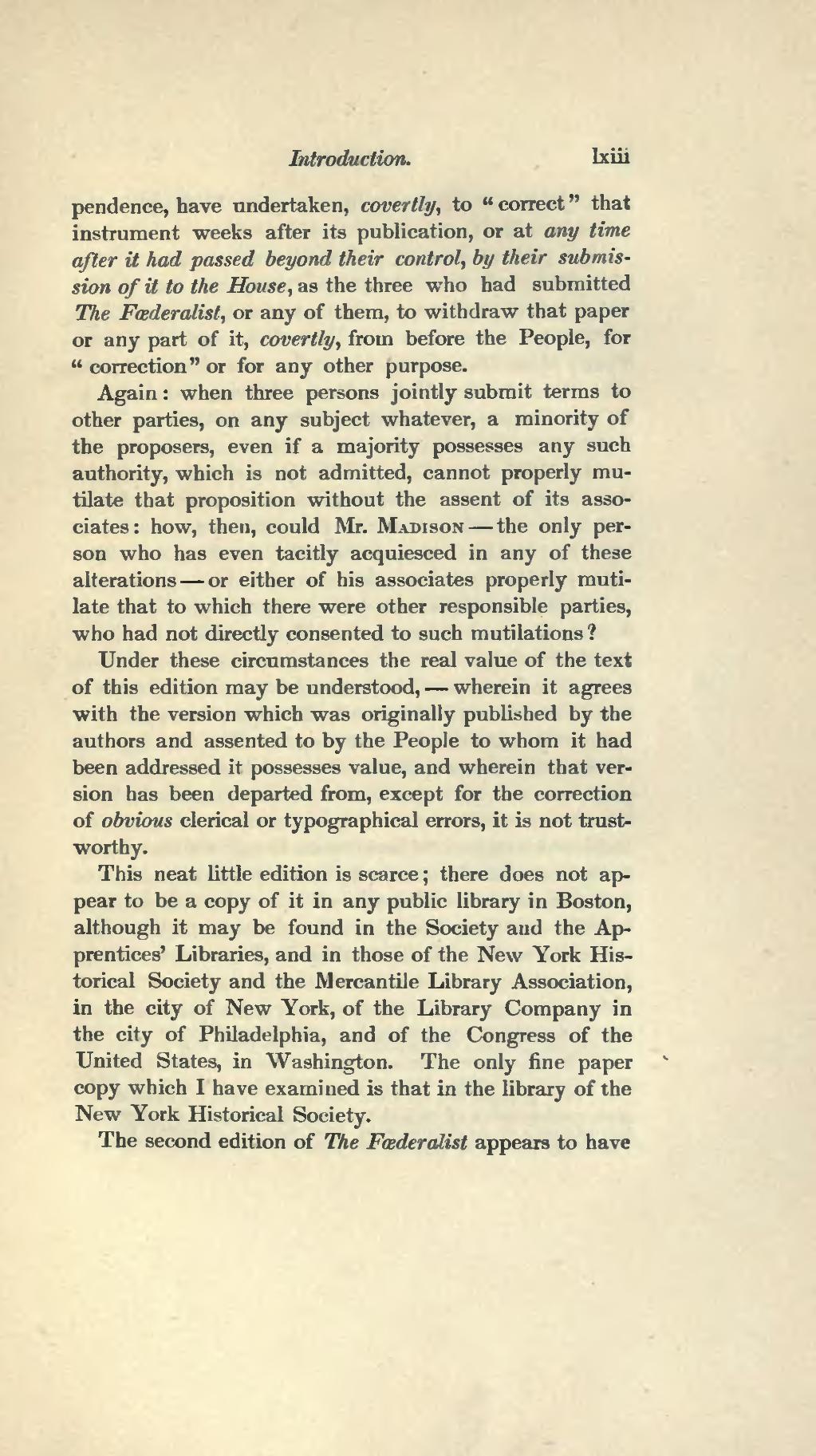pendence, have undertaken, covertly, to "correct" that instrument weeks after its publication, or at any time after it had passed beyond their control, by their submission of it to the House, as the three who had submitted The Fœderalist, or any of them, to withdraw that paper or any part of it, covertly, from before the People, for "correction" or for any other purpose.
Again: when three persons jointly submit terms to other parties, on any subject whatever, a minority of the proposers, even if a majority possesses any such authority, which is not admitted, cannot properly mutilate that proposition without the assent of its associates: how, then, could Mr. Madison—the only person who has even tacitly acquiesced in any of these alterations—or either of his associates properly mutilate that to which there were other responsible parties, who had not directly consented to such mutilations?
Under these circumstances the real value of the text of this edition may be understood,—wherein it agrees with the version which was originally published by the authors and assented to by the People to whom it had been addressed it possesses value, and wherein that version has been departed from, except for the correction of obvious clerical or typographical errors, it is not trustworthy.
This neat little edition is scarce; there does not appear to be a copy of it in any public library in Boston, although it may be found in the Society and the Apprentices' Libraries, and in those of the New York Historical Society and the Mercantile Library Association, in the city of New York, of the Library Company in the city of Philadelphia, and of the Congress of the United States, in Washington. The only fine paper copy which I have examined is that in the library of the New York Historical Society.
The second edition of The Fœderalist appears to have

